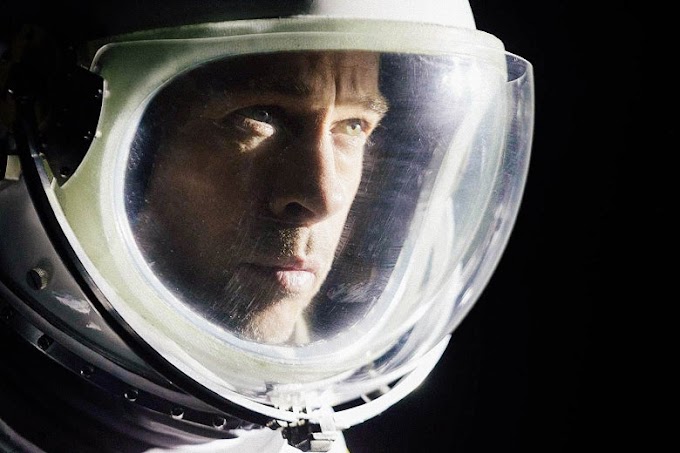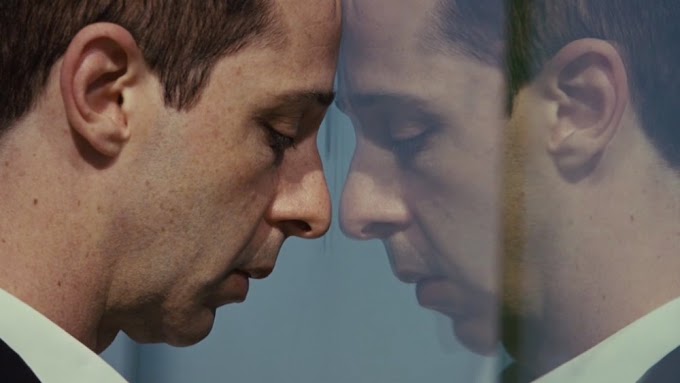Early on in the series, Dolores bleeds robot blood into the arms of human ex-soldier Caleb Nicholls, played by the receding hairline of Aaron Paul, a character who has been labelled as an ‘outlier’ of human society, feared by the authorities for his freethinking ways and so hired as an assassin to take out other outliers before finally being taken out himself.
Before the government – itself now governed by an all-seeing tech company – can kill Caleb off and restore order in the system however, Dolores gives him a way out. She shows Caleb his past and his pre-mapped future and gives him a choice. Help her destroy Rehoboam in order to free the people (and ostensibly throw civilization into chaos so the robots can also be free) or continue to live on the government-approved path, which will soon lead to Caleb’s own assassination. Not much of a choice, but a choice nonetheless, and, it so happens, a choice that the entire season hinges on.
Out of reluctance to live a life void of autonomy, or simply a reluctance to disappoint our flaming-hot protagonist, Caleb joins the ranks of Dolores’ robot nihilists, chiefly comprised of several versions of herself (yeah, robot, remember).
Along the journey to take on Serak, owner of Rehoboam, Dolores and Caleb alternate between ass kicking and soul searching. Our murderous season two Dolores slowly becomes less rage-filled as she realises that the humans are not so unlike herself. Similarly trapped in predetermined lives, the humans are living a parallel version of Westworld, with the added bummer of only being able to die once. When Caleb asks Dolores her motivation for choosing him she knocks him with a ‘don’t question my motivations and I won’t question yours.’ Did Caleb have an ulterior motive for rescuing Dolores who had been shot the night they met? Or was he simply struck blind by her beauty? Perhaps yes to both; but more pertinently, we realise that Caleb was the one in need of saving that night. A trained killer dedicated to the lure of money, Dolores offered a way out, a road to something more.
So, what can robots teach us about ethics?
Here ethics takes centre stage in my frontal cortex, as it tends to. I find myself wondering about the ethics of relationships in general, of our hidden motives for saviour, what is essentially a reliance on one another to give our lives meaning. I wonder about the ethics of freedom even, when millions of people will be launched into instability and terror as a result of having it. Serak of Rehoboam, played by Vincent Cassel, is our easy villain and yet for a time in the series he appears as a saviour for the human race, working with Thandie Newton’s robo fille de joie Maeve, in order to take down Dolores and save his vision of humanity.
And yet, I cannot help but resent Serak’s arrogance in assuming his way is the only way. His belief in Rehoboam is so resounding that he even kills his own brother to make real his vision. When Caleb takes his choice to free the people from this AI superpower, Serak spits bitterly that Caleb is a good-for-nothing sociopath. ‘How dare this one man deign to control humanity’s story?’ his glare seems to ask. The irony is not lost here as we see Serak clutching at the frayed straws of his own control; he is nothing if not the same.
While Aaron Paul’s easy-going magnetism is a clear reason to cast him in season three, it is only later in the series that we are able to see why Dolores chose him as the leader of her revolution. While Caleb downheartedly deems it to be his capacity for violence, Maeve corrects him by saying that it is actually his capacity for choice. This again is a nod to ethics; humans have the capacity to choose between doing right and doing wrong, and, in reading the entirety of Caleb’s life (as written by Rehoboam) Dolores figures that Caleb’s choices, despite involving a ton of killing, lean towards the good. She chooses him – with all the autonomy that a rogue AI cyborg living in a post 4th-wave-Feminist society – can muster, to free the human race into a new world of chaos and anarchy. The pursuit of the ‘key’ to a brighter world remains ongoing, but, wherever the key lies, it’s looking more and more like it’s buried deep in the question of ethics – in choice. If we make the right choices, the Valley Beyond may open… or we die trying.
And if you've forgotten who all of the people just mentioned are, watch the recap below before you start season three, and keep the Westworld Wiki tab open so that you can check which characters are human/android!








0 Comments